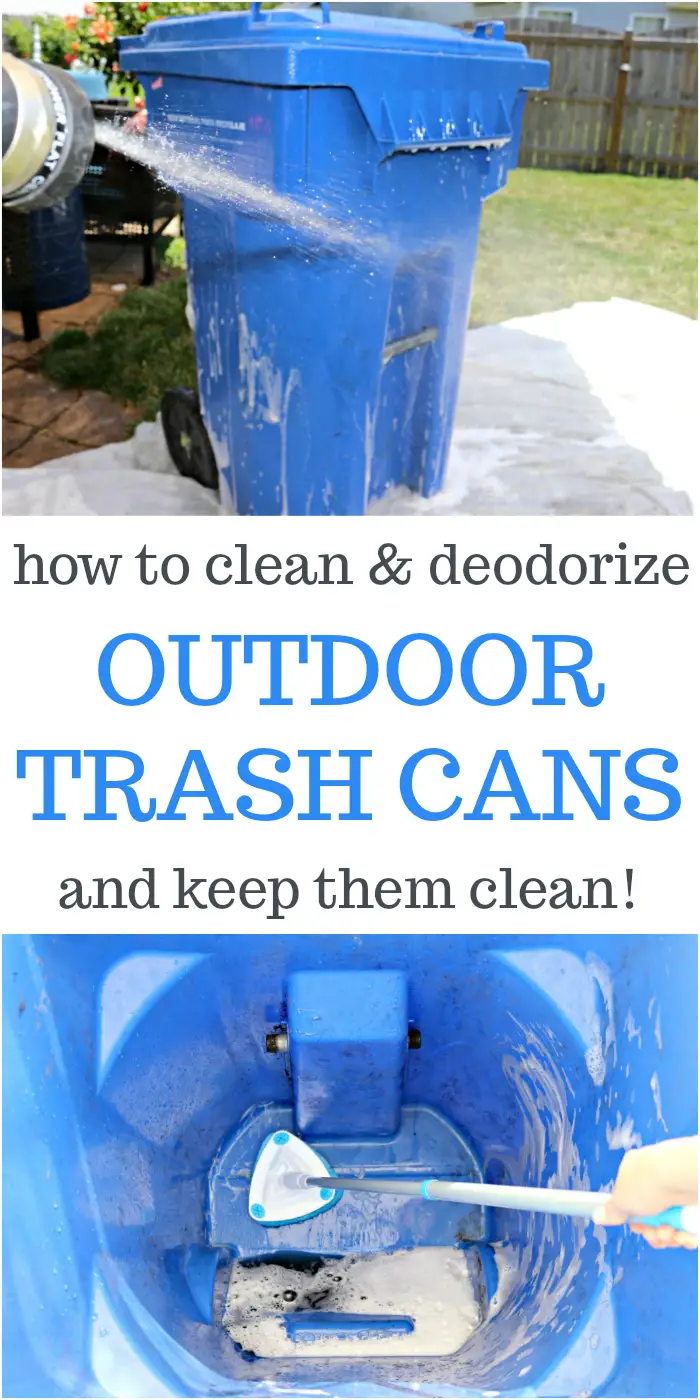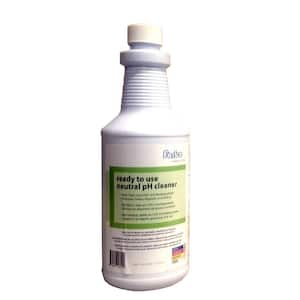Yes, Lysol can kill fruit flies when sprayed directly on them. Lysol can effectively eliminate fruit flies.
Fruit flies can be a nuisance in homes, especially in warmer months when they are more active. These tiny pests are attracted to ripe or fermenting fruits and vegetables, as well as sugary substances like juice and soda. While there are various methods to control fruit fly infestations, using Lysol spray can be an effective solution.
Lysol contains chemicals that are harmful to insects, including fruit flies. By spraying Lysol directly on fruit flies or on surfaces where they frequent, you can help eliminate them and prevent further infestations. It is important to note that Lysol should be used according to the manufacturer’s instructions and kept out of reach of children and pets.


Credit: www.walmart.com
The Battle Against Fruit Flies
Fruit flies are small but persistent pests that can quickly invade your home, hovering around your fruits and vegetables. Dealing with these tiny nuisances can feel like a never-ending battle, but there are effective methods to combat them.
Understanding Fruit Flies
Fruit flies are attracted to ripe and fermenting fruits, as well as moist, decaying organic matter. They reproduce rapidly, with females laying up to 500 eggs in their short lifespan.
The Lysol Dilemma
Many wonder if Lysol can help in the fight against fruit flies. While Lysol is known for its disinfectant properties, it may not be the most effective solution for eliminating fruit flies. Lysol might kill fruit flies on contact, but it does not address the root cause of the infestation.
Decoding Lysol And Its Effects
When it comes to dealing with pesky fruit flies, many wonder if Lysol can effectively eliminate these insects. Let’s explore Lysol’s ingredients and its impact on fruit flies to determine its efficacy.
Exploring Lysol’s Ingredients
Lysol contains active ingredients like ethanol and alkyl dimethyl benzyl ammonium saccharinate, known for their disinfectant properties. These ingredients can potentially affect fruit flies upon contact.
Analyzing Lysol’s Impact On Fruit Flies
When fruit flies come into contact with Lysol, the solution can disrupt their respiratory system and outer coatings, leading to their demise. However, the effectiveness may vary depending on the concentration and exposure.
Alternative Methods For Fruit Fly Control
Fruit flies are a common nuisance in homes, especially during the warmer months. While Lysol can be effective in killing fruit flies, there are alternative methods for fruit fly control that can also be employed to tackle this issue.
Natural Remedies
When dealing with fruit flies, natural remedies can be a safe and effective solution. Vinegar traps and essential oil sprays are popular natural methods for repelling and eliminating fruit flies without the use of harmful chemicals.
Traps And Baits
Fruit fly traps and baits can be strategically placed around the kitchen and other areas where the pests are prevalent. Commercial traps and homemade baits can help capture and eliminate fruit flies, providing an effective method for control.
The Experiment
Fruit flies are a common nuisance in many homes, buzzing around our kitchens and feasting on our ripened fruits. If you’ve ever battled these tiny insects, chances are you’ve wondered if Lysol could be the solution. In this experiment, we set out to determine whether Lysol kills fruit flies effectively. By observing the results, we can gain valuable insights into whether this household disinfectant can help eliminate these pesky pests.
Setting The Parameters
To conduct a fair experiment, we needed to establish specific parameters. We decided to use a controlled environment, consisting of a small potted plant infested with fruit flies. This simulated a typical situation in which fruit flies gather around decaying organic matter. We also chose a commonly used Lysol disinfectant spray, known for its effectiveness against various germs and bacteria.
To maintain consistency, we sprayed an equal amount of Lysol directly on the infested area, following the instructions provided by the manufacturer. This created a standardized approach that would allow us to accurately assess the efficacy of Lysol against fruit flies.
Observing The Results
After applying the Lysol spray to the infested area, we closely observed the results. Within minutes, we noticed a significant decrease in fruit fly activity. The flies seemed disoriented and eventually landed on the surface where the spray was applied. It became evident that the Lysol spray affected the fruit flies, disrupting their normal behavior and overall population.
We continued monitoring the treated area over the course of a few days. Remarkably, the number of fruit flies visible to the naked eye gradually decreased. This suggested that Lysol’s impact goes beyond just immediate contact, potentially providing long-lasting effects in controlling fruit fly populations.
However, it’s important to note that while Lysol showed promising results in reducing fruit flies, it did not completely eradicate them. Some of the flies remained resistant to the spray, which emphasizes the need for consistent strategies in combating these pests.
In summary, our experiment demonstrated that Lysol effectively kills fruit flies, significantly reducing their numbers and interfering with their behavior. While it may not eliminate them entirely, Lysol can be a valuable tool in managing and preventing fruit fly infestations in your home.
Unveiling The Ultimate Solution
Discovering pesky fruit flies buzzing around your kitchen can be a real nuisance. These tiny creatures can invade your space in no time and quickly become a bothersome pest. When it comes to effective fruit fly eradication, many homeowners wonder if Lysol can do the job. In this blog post, we will delve into the effectiveness of Lysol in eliminating fruit flies and explore optimal methods to get rid of these tiny intruders.
Effectiveness Of Lysol
So, does Lysol kill fruit flies? The answer is yes, but with a caveat. Lysol is primarily designed as a surface cleaner and disinfectant, meaning its primary function is not to eradicate pests. However, it can be effective in getting rid of fruit flies when used in conjunction with other methods.
To understand how Lysol works against fruit flies, let’s break it down. Fruit flies are attracted to moist, rotting organic matter, such as overripe fruits or sticky residues left on kitchen surfaces. Lysol, with its powerful disinfectant properties, can help eliminate these attractive sources by killing the bacteria and germs that attract fruit flies.
When using Lysol to combat fruit flies, it is important to follow the instructions on the label carefully. To start, ensure that your surfaces are clean and free of any food debris. Then, spray an even coat of Lysol on the affected areas, paying close attention to potential breeding grounds like drains or garbage bins. Wipe away any excess spray to prevent it from coming into contact with food or utensils.
| Pros | Cons |
|---|---|
| Lysol is readily available and affordable. | Lysol may not directly kill fruit flies, but it can help eliminate the sources that attract them. |
| Its disinfectant properties can eliminate bacteria and germs. | Lysol is not specifically designed for pest eradication. |
| Using Lysol alongside other methods can be effective in controlling fruit flies. | Overusing Lysol may result in harmful chemical exposure. |
Optimal Fruit Fly Eradication Methods
While Lysol can be a helpful addition to your fruit fly eradication arsenal, it is important to explore other optimal methods to ensure effective control. Here are some proven methods:
- Eliminate breeding grounds: Fruit flies thrive in moist environments, so keep your kitchen clean and dry. Remove any overripe fruits or vegetables from countertops and clean up spills promptly.
- Use homemade traps: Create simple yet effective traps using apple cider vinegar, dish soap, and plastic wrap. Fruit flies will be attracted to the vinegar and get trapped in the soapy liquid.
- Inspect and clean drains: Fruit flies often breed in damp drains. Regularly clean your drains using a mixture of warm water and vinegar to deter these pests.
- Seal trash bins and compost piles: Ensure your trash bins and compost piles are properly sealed to eliminate potential breeding sites for fruit flies.
- Seek professional help: If fruit fly infestations persist despite your efforts, consulting a pest control professional can help identify the root cause of the problem and provide effective solutions.
In conclusion, while Lysol alone may not be the ultimate solution for eliminating fruit flies, it can certainly contribute to your efforts in keeping them at bay. By adopting a comprehensive approach and incorporating the optimal fruit fly eradication methods mentioned above, you can create a fly-free environment in your kitchen and enjoy a pest-free home.

Credit: www.mom4real.com

Credit: www.homedepot.com
Frequently Asked Questions On Does Lysol Kill Fruit Flies
Does Lysol Kill Fruit Flies?
Yes, Lysol can kill fruit flies. The disinfecting properties of Lysol can effectively eliminate fruit flies when sprayed directly on them. However, it is important to remember that Lysol is not a long-term solution and you may need to identify and eliminate the source of the fruit flies to prevent their recurrence.
How Does Lysol Kill Fruit Flies?
Lysol kills fruit flies by quickly breaking down their outer shell, leading to their death. The active ingredients in Lysol, such as ethanol and alkyl dimethyl benzyl ammonium chloride, work by disrupting the cell membranes of the insects, causing damage and eventual death.
Can I Use Lysol To Eliminate Fruit Flies In My Kitchen?
Yes, Lysol can be used in your kitchen to eliminate fruit flies. Make sure to clean the affected areas and then spray Lysol directly on the fruit flies. However, it is essential to follow the instructions on the Lysol packaging and take necessary precautions to ensure the safety of food preparation surfaces.
Is Lysol Harmful To Humans?
Lysol can be harmful if ingested or if it comes in contact with eyes or open wounds. It is crucial to use Lysol in a well-ventilated area and avoid direct inhalation or ingestion. Additionally, it is advisable to keep Lysol out of reach of children and pets to prevent accidental exposure.
Conclusion
In short, Lysol can effectively kill fruit flies, making it a valuable tool for managing infestations. As a common household product, it offers a convenient and accessible solution to this persistent nuisance. By following the proper application guidelines, you can leverage Lysol to maintain a clean and pest-free environment in your home.